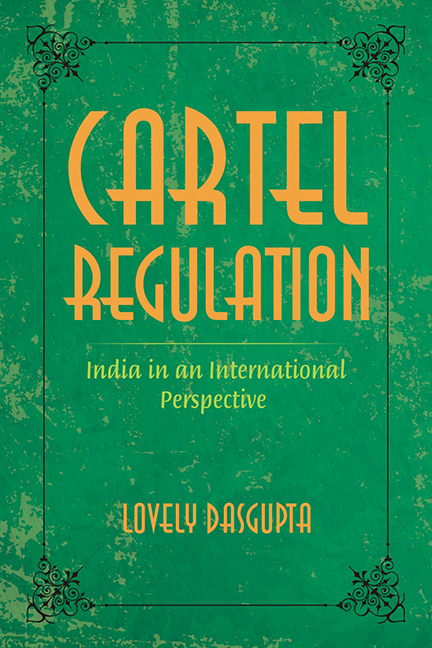Book contents
- Frontmatter
- Contents
- Preface
- Abbreviations
- 1 Introduction
- 2 Cartels: Understanding the Sum and Substance of the Concept
- 3 Cartels and Consumer Interests in the US
- 4 EU, Cartels and Consumer Interests
- 5 India, Cartels and Consumer Interests: The MRTP Phase
- 6 Cartels, Consumer Interests and India Post-MRTP Phase
- Conclusion
- Appendix 1
- Appendix 2
- Bibliography
- Index
Conclusion
Published online by Cambridge University Press: 29 November 2022
- Frontmatter
- Contents
- Preface
- Abbreviations
- 1 Introduction
- 2 Cartels: Understanding the Sum and Substance of the Concept
- 3 Cartels and Consumer Interests in the US
- 4 EU, Cartels and Consumer Interests
- 5 India, Cartels and Consumer Interests: The MRTP Phase
- 6 Cartels, Consumer Interests and India Post-MRTP Phase
- Conclusion
- Appendix 1
- Appendix 2
- Bibliography
- Index
Summary
The discussion in Chapter 2 revealed that cartels fall within the spectrum of horizontal cooperation. However, cartels are formed to avoid the cost of competition and not for any other purpose. The idea of such a cooperative arrangement is always to benefit the producer or the cartelists. The loss inevitably has to be borne by the consumer. Irrespective of all socio-political justifications for promoting cartels, it has hardly ever been benevolent to the consumer. Cartels essentially feed on the weaker bargaining power of the consumer. Therefore, in dealing with cartels, a pro-consumer approach is justified. This is more so in the context of India where the law itself recognizes a broader definition of consumers, the focal point of the competition law. From the Indian perspective, both the intermediaries as well as the end consumers are included within the concept of a consumer. The common link between these wide spectra of consumers is the lack of bargaining power vis-à-vis the corporate bodies that form the cartels. As cartels resemble contracts, they are equally susceptible to the contractual doctrine of restraint of trade. The doctrine of restraint of trade was developed essentially with the idea of preventing oppressive contracts.
Accordingly, all contracts which imposed naked restraints without any just cause were declared to be void. Under the common law, the only criterion to assess the justness of the restraint is the test of reasonableness. The courts in England therefore assess whether the restraint is necessary to protect the interest of the party in whose favour it was given and whether the restraint interferes with public interest. Be that as it may, under the Indian law, the doctrine renders all clauses in restraint of trade as per se void. Therefore, analysis on the basis of ancillary or naked restraint is not permitted under Indian law. This difference though does not affect the utility of the doctrine in dealing with cartel cases. Theoretically, the doctrine can be used by a party to a cartel agreement to challenge the validity of the agreement. But as cartels are prohibited under the Competition Act, 2002, any person challenging the cartel agreement on the ground of restraint of trade will be faced with the challenge of in pari delicto. Consequently, the party may be denied any relief unless the party is able to show inequality of bargaining power.
- Type
- Chapter
- Information
- Cartel RegulationIndia in an International Perspective, pp. 220 - 226Publisher: Foundation BooksPrint publication year: 2014



